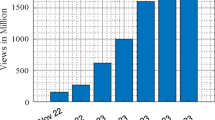Abstract
The introduction of large language models in recent years transformed the use of artificial intelligence in our daily life, making it available to common users and allowing them to interact with natural language processing machines. However, the common and general knowledge of large language models is not reliable when it comes to the quality of the response and its veracity. The proposed work integrates the use of retrieval-augmented generation with large language models with a multi-agent system framework to enable the creation of trees of knowledge where multiple agents have domain specific knowledge. The proposed agent-based solution was tested in a realistic case study where multiple knowledge domains are distributed amongst six different agents. The case study evaluates the capacity of agents to delegate questions according to its topics and the capacity of correctly replying to questions. The results are promising, demonstrating the ability of large language models to assess and process information that wasn’t used in its training process.
Access this chapter
Tax calculation will be finalised at checkout
Purchases are for personal use only
Similar content being viewed by others
References
Zhao, W.X., et al.: A survey of large language models http://arxiv.org/abs/2303.18223 (2023)
Liu, Y., et al.: Summary of ChatGPT-related research and perspective towards the future of large language models. Meta-Radiology 1, 100017 (2023). https://doi.org/10.1016/j.metrad.2023.100017
Yao, J.-Y., Ning, K.-P., Liu, Z.-H., Ning, M.-N., Yuan, L.: LLM lies: hallucinations are not bugs, but features as adversarial examples http://arxiv.org/abs/2310.01469 (2023)
Xi, Z., et al.: The rise and potential of large language model based agents: a survey http://arxiv.org/abs/2309.07864 (2023)
Jiang, Z., et al.: Active retrieval augmented generation http://arxiv.org/abs/2305.06983 (2023)
Guo, T., et al.: Large language model based multi-agents: a survey of progress and challenges http://arxiv.org/abs/2402.01680 (2024)
Hong, S., et al.: MetaGPT: meta programming for a multi-agent collaborative framework http://arxiv.org/abs/2308.00352 (2023)
Mandi, Z., Jain, S., Song, S.: RoCo: dialectic multi-robot collaboration with large language models http://arxiv.org/abs/2307.04738 (2023)
Du, Y., Li, S., Torralba, A., Tenenbaum, J.B., Mordatch, I.: Improving factuality and reasoning in language models through multiagent debate http://arxiv.org/abs/2305.14325 (2023)
Wu, Q., et al.: AutoGen: enabling next-gen LLM applications via multi-agent conversation http://arxiv.org/abs/2308.08155 (2023)
crewAI - Platform for multi AI agents systems. https://www.crewai.com/. Accessed 03 Apr 2024
The problem with LangChain. https://minimaxir.com/2023/07/langchain-problem/. Accessed 03 Apr 2024
Lewis, P., et al.: Retrieval-augmented generation for knowledge-intensive NLP tasks. In: Advances in Neural Information Processing Systems, pp. 9459–9474. Curran Associates, Inc. (2020)
Ram, O., et al.: In-context retrieval-augmented language models. Trans. Assoc. Comput. Linguist. 11, 1316–1331 (2023). https://doi.org/10.1162/tacl_a_00605
Ribeiro, B., Pereira, H., Gomes, L., Vale, Z.: Python-based ecosystem for agent communities simulation. In: Bringas, P.G., et al. (eds.) SOCO 2022, pp. 62–71. Springer, Cham (2023). https://doi.org/10.1007/978-3-031-18050-7_7
Zhang, Y., Jin, R., Zhou, Z.-H.: Understanding bag-of-words model: a statistical framework. Int. J. Mach. Learn. Cybern. 1(1–4), 43–52 (2010). https://doi.org/10.1007/s13042-010-0001-0
Mikolov, T., Chen, K., Corrado, G., Dean, J.: Efficient estimation of word representations in vector space http://arxiv.org/abs/1301.3781 (2013)
XMPP (2024). https://en.wikipedia.org/w/index.php?title=XMPP&oldid=1214756079
Acknowledgments
This work has been supported by the European Union under the Next Generation EU, through a grant of the Portuguese Republic’s Recovery and Resilience Plan (PRR) Partnership Agreement, within the scope of the project PRODUTECH R3 – “Agenda Mobilizadora da Fileira das Tecnologias de Produção para a Reindustrialização”, Total project investment: 166.988.013,71 Euros; Total Grant: 97.111.730,27 Euros. The authors acknowledge the work facilities and equipment provided by GECAD research center (UIDB/00760/2020), DOI: https://doi.org/10.54499/UIDB/00760/2020 to the project team.
Author information
Authors and Affiliations
Corresponding author
Editor information
Editors and Affiliations
Ethics declarations
The authors have no competing interests to declare that are relevant to the content of this article.
Rights and permissions
Copyright information
© 2025 The Author(s), under exclusive license to Springer Nature Switzerland AG
About this paper
Cite this paper
Oliveira, F., Gomes, L., Vale, Z. (2025). Retrieval-Augmented Generation Powered by a Multi-agent System to Assisted the Operation of Industries. In: Mathieu, P., De la Prieta, F. (eds) Advances in Practical Applications of Agents, Multi-Agent Systems, and Digital Twins: The PAAMS Collection. PAAMS 2024. Lecture Notes in Computer Science(), vol 15157. Springer, Cham. https://doi.org/10.1007/978-3-031-70415-4_18
Download citation
DOI: https://doi.org/10.1007/978-3-031-70415-4_18
Published:
Publisher Name: Springer, Cham
Print ISBN: 978-3-031-70414-7
Online ISBN: 978-3-031-70415-4
eBook Packages: Computer ScienceComputer Science (R0)




